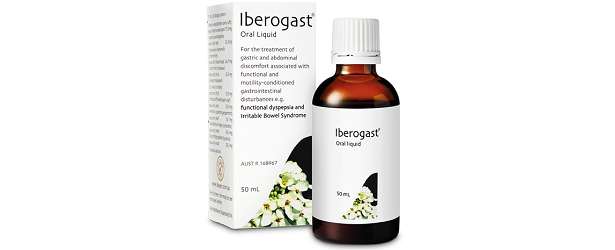
The Strong Connection Between Stress And IBS
Ever get butterflies in your stomach when you’re nervous? Feel the need to pee before a big speech or performance? These are well-known symptoms that show a link between your gut feeling and your mental state. Researchers have found a link between worsening IBS symptoms and an increase of the amount of anxiety or stress in a person’s life.
A disorder in the large intestine, irritable bowel syndrome (IBS) is not uncommon, especially in women aged 45 and under. Symptoms for IBS include cramping, constipation and/or diarrhea, and general abdominal discomfort. However, stress can stimulate your digestive system, leading to uncomfortable bowel movements. The feeling of butterflies in your stomach or cramping you may feel when you’re nervous is your brain telling your gut to work – even if it’s overworking. Other times, a stress response causes your brain signals to be unresponsive, resulting in your stomach to digest slowly. This leads to side effects like cramps, constipation and gas.
Stress and anxiety are under the category of mental disorders; there are at least 40% – 60% of people diagnosed these disorders who also have IBS. Constipation and/or diarrhea worsen when stressful situations occur in someone’s life, like a breakup, a major life change, or a trauma. This occurs because stress affects your biological functions, such as reducing blood flow especially in the intestines, and inflaming your immune system. With an increase of stress, these symptoms become more severe, triggering a possible flare-up of IBS.
The Unending Cycle: Suffering From IBS Leads to Stress
Without the added symptom of anxiety, suffering from IBS is tough. Especially when it is untreated, IBS disrupts your life, causes you pain, ruins your appetite and decreases your overall quality of life. The problems of IBS can even cause your body to go into a stress response. When you go into a stress response, hormones are released into your system. One hormone in particular, called CRF, maintains the activity in your stomach, but if it is overstimulated, it can worsen inflammatory symptoms. These hormones also cause an imbalance of intestinal bacteria, leading to IBS symptoms like abdominal pain and cramping, or even triggering the body to develop IBS if it didn’t have it yet.
Treatment
Treatment for IBS takes time because your doctor needs to pin down your symptoms and try out many different medications and diets. After taking your medical history and a stool or blood sample, your doctor can prescribe you with medication according to your needs. Your doctor will also talk to you about changes in your diet and perhaps adding a supplement to your daily routine.
To manage your stress and anxiety, you need to find ways to limit your stress by finding situations that may trigger it and lessen your exposure. Keeping a diary for both food and your mood is essential to track any cycles or patterns that emerge in your life. To reduce your current stress, light exercise like yoga or aerobics is suggested.
TOP 5
IBSTreatments |
|||||
| IBS Clear | BioGanix BioZyme Digestive Enzymes | Nature's Sunshine Food Enzymes | Herbs of Gold IBS Advanced | Kijimea IBS | |
|---|---|---|---|---|---|
| 1 | 2 | 3 | 4 | 5 | |
| Price (1 bottle) Price (6 bottles) best value |
$49.95 $139.70 |
$45.95 $183.80 |
$39.95 $239.70 |
$39.95 $239.70 |
$42.94 $257.64 |
| Overall Rating | 98.7% | 82.00% | 71% | 64% | 61% |
| Effectiveness |





|





|





|





|





|
| Speed of Results | Extremely Fast | Fast | Good | Average | Slow |
| Quality of Ingredients | Premium | Good | Good | Average | Average |
| Customer Satisfaction Evaluation | 99.50% | 81% | 79% | 72% | 68.2% |
| Safety Evaluation | Safe for Use | Safe for Use | Safe for Use | Safe for Use | Safe for Use |
| Customer Service Rating |





|





|





|





|





|
| Reorder Rate | Highest | Good | Average | Good | Average |
| Return Policy | Risk Free | Unused | Risk Free | Unused & Unopened | No |
| Success Rate | 99.60% | 83% | 77% | 71.20% | 69.2% |

 Subscribe Now
Subscribe Now










